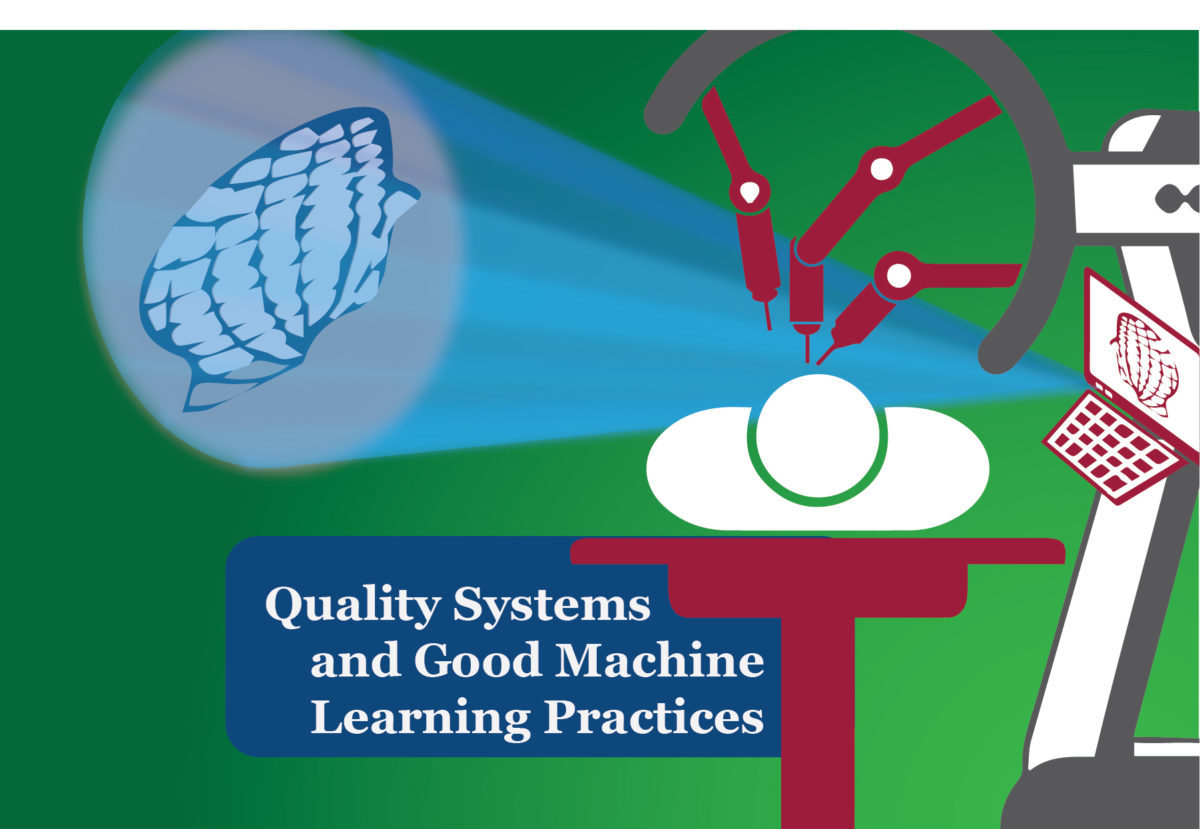FDA expects every medical device manufacturer to have a robust and compliant quality system. FDA has been taking great strides in establishing regulations for the digital health industry that also facilitates research and development while maintaining high quality products.
In our previous blog: ARTIFICIAL INTELLIGENCE & MACHINE LEARNING TECHNOLOGIES, we talked about how FDA plans on regulating devices with Artificial Intelligence(AI) and Machine Learning (ML) technologies. In this blog, we will dive deeper into how the FDA expects to see the integration of Quality System and Good Machine Learning Practices (GMLP).
FDA envisions applying a Total Product Lifecycle (TPLC) regulatory approach for companies developing AI/ML-based SaMD. The TPLC approach will assess the culture of quality and organizational excellence that will give FDA assurance of the quality of software products developed by that company. This approach is the core of the Software Pre-Cert Program.1
Please read our blogs for more information on the Software Pre-Cert Program:
FDA’S DIGITAL SOFTWARE PRE-CERTIFICATION PROGRAM
AN UPDATE ON FDA’S DIGITAL SOFTWARE PRE-CERTIFICATION PROGRAM
This approach is particularly important for AI/ML-based devices because of its ability to adapt and improve using real-world performance data. Another important element of this TPLC approach is the integration of the Quality System and the Good Machine Learning Practices. This helps balance the benefits, risks, safety, and effectiveness of the device while allowing for the necessary technological advancements.
Good Machine Learning Practices are the best practices which are aligned with good software engineering practices and good quality system practices. Some elements of GMLP are:1
- The relevance of the available data to the clinical problem
- Data is acquired in a consistent manner and aligns with the intended use and the modification plans submitted to the FDA
- The appropriate separation between training, tuning and test datasets
- The clarity in the output and the algorithm used.
As part of the validation activities for the AI/ML devices, the manufacturers must demonstrate a valid clinical association, analytical validation and clinical validation as per the SaMD: Clinical Evaluation Guidance. The data required in the premarket review and in the study design depends on the risk posed by the device to the users and patients, its intended use.1

Data Source: FDA (Jan 2019) Proposed Regulatory Framework for Modifications to Artificial Intelligence/Machine Learning (AI/ML)-Based Software as a Medical Device (SaMD) – Discussion Paper and Request for Feedback retrieved on 04-10-2019 from
AI/ML driven devices learn from real world data and hence prompts unique regulatory considerations. FDA’s proposed regulatory framework is open for public comments. You can submit your suggestions or comments on FDA’s Proposed Regulatory Framework for Modifications to Artificial Intelligence/Machine Learning (AI/ML)-Based Software as a Medical Device (SaMD) – Discussion Paper and Request for Feedback using the following link https://www.regulations.gov/comment?D=FDA-2019-N-1185-00011
For any other questions that you may have about the proposed regulatory framework, please contact us at 248-987-4497 or info@emmainternational.com.
1FDA (Jan 2019) Proposed Regulatory Framework for Modifications to Artificial Intelligence/Machine Learning (AI/ML)-Based Software as a Medical Device (SaMD) – Discussion Paper and Request for Feedback retrieved on 04-10-2019 from
https://www.fda.gov/MedicalDevices/DigitalHealth/SoftwareasaMedicalDevice/ucm634612.htm






